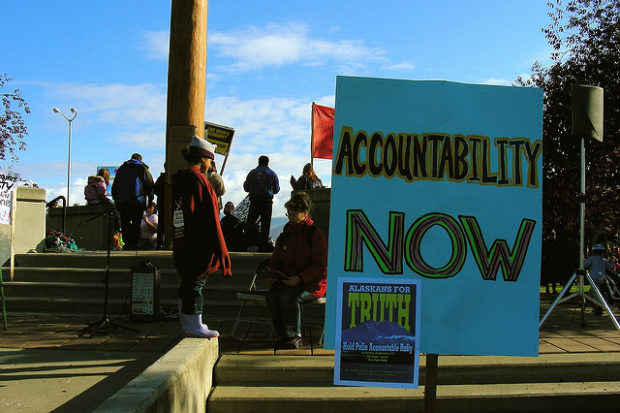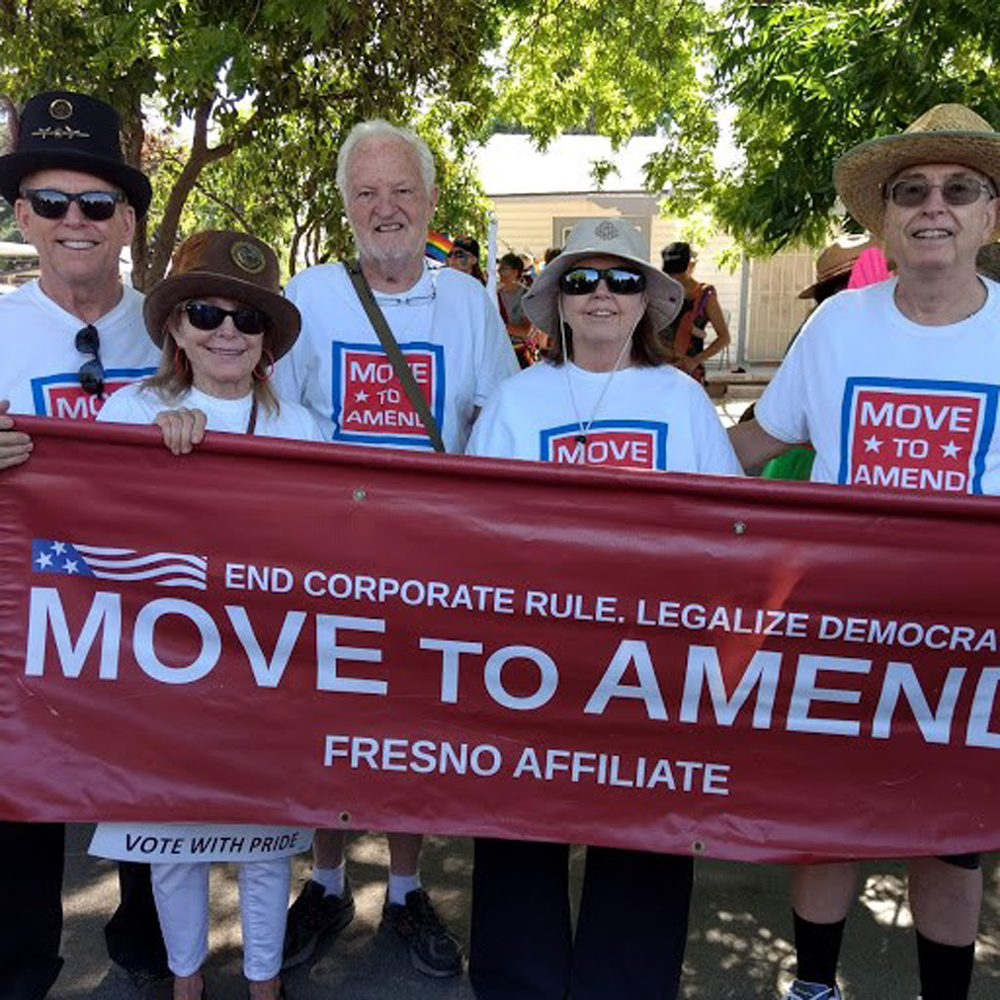
By Robert Pethoud
Which of the following should be our nation’s highest priority today?
- Reversing climate change and environmental degradation
- Lessening wealth disparity
- Diminishing gun violence
- Reducing massive incarceration rates
- Achieving universal healthcare
- Another worthy cause?
Regardless of the issue you chose, it’s likely that little progress can be made until we reclaim our democracy from the moneyed interests. Realize that most Americans believe that the Earth is warming as a result of human activity, want background checks for all firearms purchases and favor Medicare buy-in for everyone. It seems that our representative government is sensitive to the needs and wants of large corporations, wealthy individuals and moneyed special interests, but it’s not responsive to the wishes of a majority of its citizens.
Corporate lobbyists draft legislation, wealthy individuals make large donations to influence politicians and corporations use constitutional protections meant for We the People to escape accountability and thwart regulation intended to protect communities and the planet from harm. The fundamental problem stems from two flawed principles:
- Corporations are persons and are therefore entitled to constitutional rights.
- Spending money is equivalent to exercising free speech.
All the issues listed above and many more have a nexus with corporate power and big money.
To understand how we got into this predicament, we need to go back before the Civil War. At that time, churches, schools, guilds, unions, clubs, corporations and other associations of human beings were deemed, for legal purposes, to be “artificial persons.” This designation allowed these shifting groups of people to hold property and to sue and be sued in courts of law. Furthermore, it plainly distinguished them from “natural persons,” aka human beings. These artificial persons were understood by everyone to be legal fictions, having no inherent rights.
Moreover, before 1865, states in which corporations were chartered set strict limits on them, including the following:
- They were chartered for a limited time, not “in perpetuity.”
- They were required to have a clear, specific purpose in the public interest, not just for private economic profit.
- They could only engage in activities that furthered this purpose.
- Their owners and managers were held personally criminally liable for corporate misdeeds.
- They were prohibited from making political contributions and from lobbying.
- They were prohibited from purchasing or owning stock in other corporations.
- They could be dissolved if they violated the rules or caused public harm.
After the Civil War, the Fourteenth Amendment was written to grant rights to freed slaves. The first section states, “No state shall…deny to any person within its jurisdiction the equal protection of the laws.” Can you see the problem? Because the drafters of the amendment omitted the adjective “natural” before the word “person,” corporate attorneys could argue that their clients, being “artificial persons,” were entitled to all the constitutional rights of human citizens.
After multiple failed attempts, this argument finally prevailed in the 1886 SCOTUS decision in Santa Clara County v. Southern Pacific Railroad. The headnote to this decision, written by court reporter J. C. Bancroft Davis, states, “The defendant Corporations are persons within the intent of the clause in section 1 of the Fourteenth Amendment to the Constitution of the United States, which forbids a State to deny to any person within its jurisdiction the equal protection of the laws.”
Since 1886, the Supreme Court has expanded the rights of corporations to include, among others, Fourth Amendment search-and-seizure protection in Hale v. Henkel (1906) and the protection of the Fifth Amendment’s takings clause in Pennsylvania Coal Co. v. Mahon (1922). In 1915, the state of Delaware allowed corporations to have interlocking boards of directors, own stock in other corporations, define themselves for “any legal purpose” and live forever. By 1970, most states had followed suit.
Over the last four decades, the Supreme Court has ever more closely identified money with speech. Buckley v. Vallejo (1976) established the principle that spending money equals constitutionally protected free speech; First National Bank of Boston v. Bellotti (1978) allowed corporations to make contributions to influence the political process; Citizens United v. Federal Elections Commission (2010) overturned most provisions of the McCain-Feingold legislation regulating campaign contributions; and McCutcheon v. FEC (2014) says that aggregate contribution limits violate the First Amendment.
Move to Amend is a national, nonpartisan, grassroots organization that demands that the government be accountable to all the people, not just to wealthy corporations and individuals. Move to Amend proposes an amendment to the Constitution, called the “We the People Amendment,” which clearly establishes that 1) corporations are not entitled to constitutional rights and 2) money is not speech and can be regulated in political campaigns.
Recently, many groups have come together to overturn Citizens United, but a review of the history shows that that one decision is not the only source of the problem we face. Move to Amend is unique in opposing money as speech and corporate constitutional rights; as such, it is the only group proposing a viable solution.
Remember those big challenges we face, listed at the top of this article? Clearly, we live at a time of multiple crises, all of them urgent. We can’t afford to fix them sequentially because there’s not enough time and, besides, they overlap one another. Passing the We the People Amendment will allow us to solve them by creating integrated solutions over the objections of the moneyed interests.
A crisis of democracy is at the root of nearly all our problems. Only when We the People make our government listen to us can we make progress. Join with Move to Amend to take back our democracy from the moneyed interests.
Visit https://movetoamend.org to find out how you can get involved, then contact the Fresno Affiliate of Move to Amend at fresno@movetoamend.org. Fresno Move to Amend meets the second Monday of each month at 6:30 p.m. at the Fig Garden Regional Library (3071 W. Bullard Ave.).
*****
Robert Pethoud taught mathematics for 36 years to students in grades 7 through 12. He is the author of a book on using mathematics to teach astronomy and of several magazine articles dealing with his longtime hobby of model railroading. Now in retirement, he and his wife of 45 years are active in social justice and progressive Christian causes.

